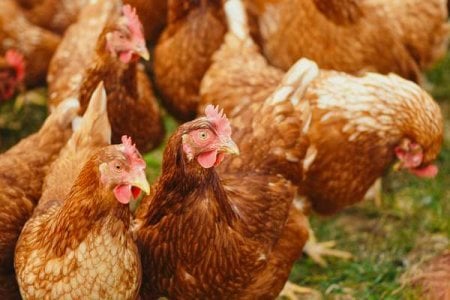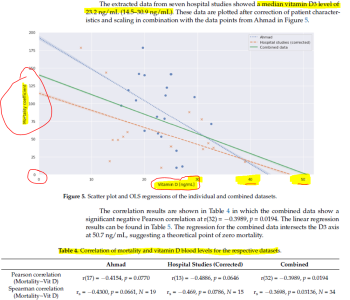Australia declares first human 'bird flu' case—here's what we know so far
By
Danielle F.
- Replies 39
As the cooler months sweep the region, health concerns loom around, threatening the community's health.
A recent declaration has caused some citizens and farmers to panic, as it may affect their livelihoods and everyone's safety.
Australia just recorded its first human case of the avian influenza A (H5N1) infection, marking a concerning development in the spread of 'bird flu'.
A child from Victoria—whose identity remains confidential—contracted the virus while in India and fell ill in March of this year.
This announcement follows a bird flu outbreak detected on a Victorian farm, which raised questions about the potential public risks.
'Contact tracing has not identified any further cases of avian influenza connected to this case,' Victoria Health wrote in a statement.
The child reportedly suffered a severe infection but has since recovered.
'The avian influenza virus was detected through further testing of positive influenza samples that take place to detect novel or concerning flu virus strains, as part of Victoria's enhanced surveillance system,' their officials added.
While the news may be alarming, health officials reassured the public that the risk of transmission is low/
'Rarely, avian influenza infection in humans can pass to another person with prolonged contact,' Victoria Health said.
'However, there is no evidence that the H5N1 strains of avian influenza can be spread easily from human to human.'
Despite this reassurance, it's essential to be aware of the symptoms of bird flu:
A different strain of bird flu, H7N7, was detected on a Victorian egg farm following several poultry deaths.
Agriculture Victoria confirmed the virus's presence on the farm west of Melbourne and ruled out the H5 strain as the cause of the poultry outbreak.
Avian influenza is categorised in two ways—low pathogenicity (LPAI) or high pathogenicity (HPAI).
In 2020, Victoria faced an HPAI bird flu outbreak that affected three egg farms. By February 2021, they were declared disease-free.
According to Agriculture Victoria, the current risk from highly pathogenic avian influenza viruses remains low.
However, poultry and bird owners are urged to practise stringent biosecurity measures, such as:
However, any suspicion of an emergency animal disease should be reported immediately to the 24-hour Emergency Animal Disease Hotline at 1800 675 888 or a local veterinarian.

How do you feel about the recent bird flu case and farm outbreak? Have you taken any additional precautions? We invite you to share your thoughts and concerns in the comments below.
A recent declaration has caused some citizens and farmers to panic, as it may affect their livelihoods and everyone's safety.
Australia just recorded its first human case of the avian influenza A (H5N1) infection, marking a concerning development in the spread of 'bird flu'.
A child from Victoria—whose identity remains confidential—contracted the virus while in India and fell ill in March of this year.
This announcement follows a bird flu outbreak detected on a Victorian farm, which raised questions about the potential public risks.
'Contact tracing has not identified any further cases of avian influenza connected to this case,' Victoria Health wrote in a statement.
The child reportedly suffered a severe infection but has since recovered.
'The avian influenza virus was detected through further testing of positive influenza samples that take place to detect novel or concerning flu virus strains, as part of Victoria's enhanced surveillance system,' their officials added.
While the news may be alarming, health officials reassured the public that the risk of transmission is low/
'Rarely, avian influenza infection in humans can pass to another person with prolonged contact,' Victoria Health said.
'However, there is no evidence that the H5N1 strains of avian influenza can be spread easily from human to human.'
Despite this reassurance, it's essential to be aware of the symptoms of bird flu:
- Fever
- Cough
- Headache
- muscle aches
- respiratory symptoms
- Conjunctivitis, and;
- Gastrointestinal issues
A different strain of bird flu, H7N7, was detected on a Victorian egg farm following several poultry deaths.
Agriculture Victoria confirmed the virus's presence on the farm west of Melbourne and ruled out the H5 strain as the cause of the poultry outbreak.
Avian influenza is categorised in two ways—low pathogenicity (LPAI) or high pathogenicity (HPAI).
In 2020, Victoria faced an HPAI bird flu outbreak that affected three egg farms. By February 2021, they were declared disease-free.
According to Agriculture Victoria, the current risk from highly pathogenic avian influenza viruses remains low.
However, poultry and bird owners are urged to practise stringent biosecurity measures, such as:
- maintaining clean sheds, yards, aviaries, and equipment
- limiting contact between domestic poultry and wild birds
- ensuring clean footwear
- washing hands before and after handling birds or eggs, and;
- quarantining new birds.
However, any suspicion of an emergency animal disease should be reported immediately to the 24-hour Emergency Animal Disease Hotline at 1800 675 888 or a local veterinarian.
Key Takeaways
- A child in Victoria was confirmed to have the first case of bird flu in Australia after acquiring an H5N1 infection in India.
- Health officials emphasised that human transmission of avian influenza was rare, and there is no evidence of human-to-human transmission for the H5N1 strains.
- A different strain of bird flu, H7N7, was detected on a Victorian egg farm, prompting bird owners to take strict biosecurity measures.
- Agriculture Victoria assured the public that poultry and eggs in supermarkets are safe to consume and stressed the importance of immediately reporting any suspected emergency animal diseases.












